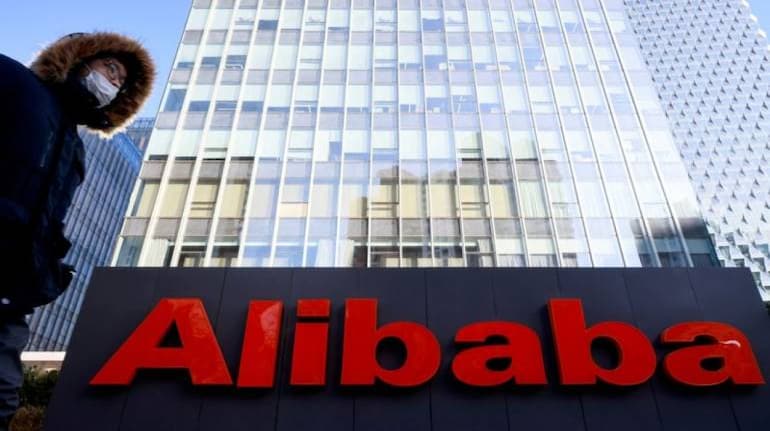



Alibaba Group Holding Ltd. last week had announced it cancelled the listing of its cloud services business, citing US restrictions on purchases of top-end semiconductors. That explanation doesn’t make sense. Instead, it betrays a bigger truth about the supply of advanced chips that afflicts companies in both China and abroad.
In the past two weeks, social-media giant Tencent Holdings Ltd. and Lee Kai-fu’s startup 01.A1 boasted they have plenty of the Nvidia Corp. graphics processing units, or GPUs, required to build and run their artificial-intelligence models. Shenzhen-based Tencent told investors it has stockpiled enough H800 GPUs to develop its Hunyuan AI system for a couple of generations. Lee, who is also chief executive officer of venture capital fund Sinovation Ventures and author of AI Superpowers, said he has sufficient supply of Nvidia GPUs to last 18 months. That achievement helped him grow 01.A1, a builder of large-language models, into a unicorn within just eight months of founding.
Alibaba, Tencent and 01.A1 are all subject to the same rules imposed by Washington on the supply of advanced semiconductors. Yet somehow Alibaba, once China’s biggest company, is so skimped for chips that future operations are uncertain, and it had to halt an IPO that could have valued its Cloud Intelligence Group at $55 billion. Processing power is one of three crucial ingredients in AI development alongside data used to train the models, and algorithms that interpret the information and spit out a result.
The US in mid-2022 announced curbs on the sale of leading processor technology to China. Companies like Nvidia tweaked their designs to create China-legal versions of their GPUs before new rules in October this year closed that loophole. While Chinese buyers face legal restrictions, the rest of the world is grappling with supply constraints.
Taiwan Semiconductor Manufacturing Co., the sole provider of cutting-edge production for clients that include Nvidia, Advanced Micro Devices Inc., Intel Corp. and Apple Inc., just doesn’t have enough capacity. Nvidia, in particular, sells these chips as quickly as TSMC can churn them out. That’s left buyers around the world scrambling to procure this crucial ingredient.
A handful of leading companies, including OpenAI, Alphabet Inc., Anthropic and Meta Platforms Inc., have plenty of GPUs. With a high ratio of processors to researchers, they can do a lot of pet projects or throw all their resources at a few big models. They are what SemiAnalysis Founder Dylan Patel describes as “the GPU-rich.” Those who missed out, the GPU-poors as Patel calls them, are going to struggle.
It seems inconceivable that Alibaba, with $63 billion in cash and annual free cash flow topping $27 billion, could find itself caught short on one of the most important facets of its most-promising business. No wonder investors dumped the stock, wiping out close to $25 billion in market value in a matter of days.
But tougher times are ahead. After blaming “uncertainties created by recent US export restrictions on advanced computing chips” for halting the cloud unit’s spinoff, it made an unconvincing statement about how it will handle the setback. “Instead, we will focus on developing a sustainable growth model based on emerging AI-driven demand for networked and highly-scaled cloud computing services,” Chairman Joe Tsai told investors.
That strategy makes even less sense. Without adequate processing power Alibaba cannot hope to compete in the AI arena, and if it doesn’t have a competitive AI offering the e-commerce player is left providing run-of-the-mill cloud services in a very crowded market with plenty of margin pressure. It could, in theory, tap into the AI models built and sold by the GPU-rich, such as 01.A1, but that reduces Alibaba to the role of reseller. That’s hardly a business worth $55 billion, which probably explains why it canceled the spinoff before its lack of value was discovered.
Tsai and his executive team are caught in a bind. AI is critical to the future of Alibaba, not just for the cloud unit but at other Baby Babas including its logistics and local services divisions. Chinese e-commerce remains its single-largest business, but the heady growth days are over. Its future is in distilling two decades of engineering, infrastructure, data and knowledge into a new empire that will increasingly cater to corporate customers such as banks, freight providers and manufacturers.
After this early setback, the company can sit around hoping to get advanced chips from Chinese suppliers, which themselves are hobbled by global restrictions on manufacturing equipment, or it can buy a company that already has a ton of Western GPUs: Lee’s 01.A1 comes to mind. Either way, Alibaba can’t afford to fall behind in the AI race, which means it simply cannot let itself be GPU-poor.
Tim Culpan is a Bloomberg Opinion columnist. Views do not represent the stand of this publication.
Credit: Bloomberg

Discover the latest Business News, Sensex, and Nifty updates. Obtain Personal Finance insights, tax queries, and expert opinions on Moneycontrol or download the Moneycontrol App to stay updated!
Find the best of Al News in one place, specially curated for you every weekend.
Stay on top of the latest tech trends and biggest startup news.